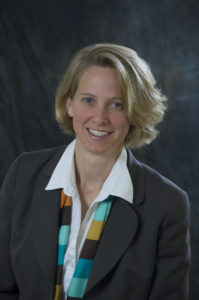 I had a fantastic experience at this year’s Social Impact Exchange Conference on Scaling Impact. Despite being one of the few people from the non-profit sector, I was warmly welcomed to join for an extraordinary two days. I attended the conference eager to learn the language of impact investing, and to build my network in the financial sector. As the founder of the Center for Hunger-Free Communities, where we seek to improve the systems that directly affect low-income families with young children, I have developed a proven financial empowerment program, the Building Wealth and Health Network. It is ready to scale. The conference is intended for funders, not for people like me on the front lines of trying to break the cycle of poverty. However, I was met with generous advice and insight. After listening to the S. Robert Levine Scaling in Action© session regarding systems strategies and the need to break away from linear thinking and planning, I knew I was in the right place.
I had a fantastic experience at this year’s Social Impact Exchange Conference on Scaling Impact. Despite being one of the few people from the non-profit sector, I was warmly welcomed to join for an extraordinary two days. I attended the conference eager to learn the language of impact investing, and to build my network in the financial sector. As the founder of the Center for Hunger-Free Communities, where we seek to improve the systems that directly affect low-income families with young children, I have developed a proven financial empowerment program, the Building Wealth and Health Network. It is ready to scale. The conference is intended for funders, not for people like me on the front lines of trying to break the cycle of poverty. However, I was met with generous advice and insight. After listening to the S. Robert Levine Scaling in Action© session regarding systems strategies and the need to break away from linear thinking and planning, I knew I was in the right place.
I work directly with people who are living in deep poverty, most of whom experience violence, depression, and hunger. Frustrated with the same stale programs attempting to address hunger by limiting attention to food programs (without addressing the underlying issues of trauma and lack of economic power), I have been trying something new in Philadelphia. The Building Wealth and Health Network (The Network) is a program for caregivers of young children who are among the poorest of the poor. Most Network members are women of color who are participating in “cash welfare” (Temporary Assistance for Needy Families), and the majority have experienced chronic exposure to violence and adversity.
Based on decades of research, The Network has demonstrated that despite relentless exposure to violence and trauma, mothers on a low-income are entrepreneurs and have extraordinary potential. Yet the state systems meant to assist them seem to truncate their entrepreneurship by criminalizing their small business ventures. The women we work with create side “hustles” such as doing hair and nails, catering, housekeeping, and childcare to pull in extra money over and above their low wage jobs and public assistance funds. They explain to us that they do it out of necessity—to make rent, to feed their children. From my perspective, they are micro impact investors. They’re investing all their extra capital into improving the lives of their children and employing innovative strategies to break out of poverty. We’re seeking to enliven and embolden them to disrupt the welfare system, and to ensure they are included in the financial mainstream.
That’s why I was especially eager to listen to the conference session, “Women and the Future of Impact Investing.” In the description of the session, it says that women have a positive inclination towards socially responsible impact investing, and that they will inherit 70% of the $41 trillion in inter-generational wealth transfer. It was the wealth transfer concept that triggered my interest. I’ve studied the intergenerational transfer of poverty for 17 years. With The Network, we aim to flip the discourse to the intergenerational transfer of wealth. At the height of the recession, the average wealth of white women was $24,000, yet the average wealth for black women was $5.
We’re changing that injustice. Despite many Network members’ distrust in banking and inexperience in financial management, we have increased their savings by 560%. The panelists at the session (Lauren Booker Allen, Senior Manager of Impact Investing at Omidyar Network, Sukhinder Singh Cassidy, Founder and CEO of Joyus and Founder at the Boardlist, and Andrea Turner Moffitt, Co-Founder at Plum Alley Investments) discussed that women are often held back by their own fear. The advice of the panelists? Be bold, include women, seek equity, build networks, don’t hold back. We teach the same types of lessons in the Network. It’s having an impact. The Network reduced depression from 79% to 46% for parents who reported exposure to trauma in childhood, and we improved household food security from 33% to 62%. We’re helping women recognize their own potential, and provide opportunities for them to create positive networks.
I found the same positive networking opportunity at the SIE Conference. It was an encouraging and hopeful experience, because I have joined this very powerful and bold community. Erika Karp of Cornerstone Capital said at the end of the conference, “capitalism needs some healing,” and what better way to do it than to ensure its tenets are used to heal and help others. It was an extraordinary sight to see so many people at the conference bowing their heads in determination to make the world better, and to unleash the potential of the most vulnerable through investment, collaboration, and sheer grit.